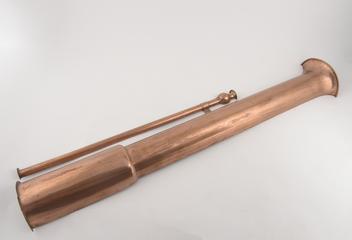
Thomas Cochrane 1775 - 1860
- occupation:
- Naval officer
- Nationality:
- Scottish; British
- born in:
- Hamilton, South Lanarkshire, Scotland, United Kingdom
1788 - spent six months at Chauvet's military academy in London before leaving to join the Navy. 1793 - joined the Royal Navy aboard HMS Hind. 1795 - appointed acting Lieutenant of HMS Thetis. 1801 - putting into Malta he caused a brawl at a fancy-dress party and fought a duel before returning to sea the following day. 1801 - promoted to Captain. 1802 - became a student of Political Economy at Edinburgh University. 1806 - stood for election at the corrupt borough of Honiton in Devon but failed in the election because he refused to pay the usual bribe. 1807 - stood for election in the constituency of Westminster. 1809 - made Knight Grand Cross (GCB). 1814 - wrongly accused of involvement in stock market fraud precipitated by spreading the rumour of Napoleon's death. Subsequently struck off the Navy List and imprisoned. 1815 - released from prison. 1817 - worked with the Chilean government to organize and command their navy in their war of liberation from Spain. 1818 - organized the construction of the first seagoing steam warship, Rising Star for the Chilean Navy. 1823 - served as an admiral in the Brazilian navy to help in their fight for independence from Portugal. 1827 - arrived in Greece in order to aid in their attempts at liberation from Turkish rule. 1831 - succeeded his father as tenth Earl of Dundonald. 1832 - given a free pardon from King William IV and returned to the Royal Navy as Rear Admiral. 1834 - developed one of the earliest rotary engines. 1844 - the Admiralty agreed to build HMS Janus to his design. 1845 - HMS Janus launched but failed on testing and was scrapped. 1851 - became a Full Admiral. 1854 - elected an elder brother of Trinity House.
